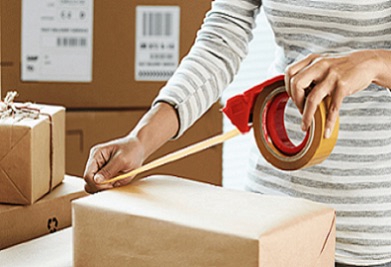Back in 2016, Chinese e-commerce site Alibaba overtook Walmart as the world’s biggest retailer. A brand – which has no physical store, is currently making the greatest volume of sales in the world. Rather than an impressive anomaly, this serves as a clear indication of how digital has taken over. However, despite this continuous progression towards the digital, the importance of tangibility remains.
A clear example of this can be found in technological advancement of the testing or recruitment process, set against a necessity to retain the human element. Testing Talent is a firm of chartered occupational psychologists providing psychometric assessment services for employers looking to assess potential talent. Principal psychologist Dominic McCanny says the rise of online digital testing has continued unabated: “Twenty years ago, if you were asked by an employer to undertake psychometric testing you would have completed a ‘paper and pencil’ test, in a supervised setting.” Now, the majority if not all psychometric testing is carried out digitally. “We have had to embrace online technology”, says Dr McCanny.
Despite this digitisation however, he says, “One major advantage of supervised testing was that the process of face-to-face contact allowed engagement with individuals, and the findings of the discussions were fed back to employers as well as to candidates. These social interactions allowed for exploration of the profile, confirming or disagreeing with the questionnaire findings.” Therefore, “in coaching situations...” concludes Dr McCanny, “... employers still rely on our skills to discuss the finding of profiles face-to-face. This allows both the individual and consultant the ability to develop meaningful conversations.”
The importance of a tangible connection in today’s digital age is equally important in other industries, and can lead to business success and growth for smaller companies in particular. For example, face-to-face interactions are crucial for SAM FARMER – the unisex teen skincare brand. Stocked in leading retailers such as SpaceNK, Superdrug and Ocado, this small business is fronted by its namesake and founder Sam Farmer, whose personal phone number is on its website. He says, “While companies employ whole departments to churn out Tweets, Instagram stories and Facebook posts, the consumers are overwhelmed and become disinterested, almost irritated. The real value is less content with a higher value for individuals... I put my mobile telephone number on my website, because sometimes you just want to speak with the person in charge.”
Farmer also meets as many customers and buyers in the flesh as he can. “Meeting people and shaking hands gives you a visual and physical contact that shouldn’t be underestimated. It provides an understanding and insight into the pressures people are working under. Instead of guessing what someone thinks, you can see it for yourself, empathise and usually find common ground. The digital world is fantastic in many ways but nothing can replace physical human contact.” It is not just the physical contact that consumers crave, but the receiving, obtaining or owning of the physical objects themselves. Therefore, maximising the doorstep experience – the final and most tangible connection a consumer has with a retailer, is of paramount importance, with the delivery agent acting as the face of the brand at this final stage in the shopping transaction.
Last year, card company MOO printed 185,601,840 business cards, that’s 500,000 cards a day and 800m cards in the company’s 10 years of existence. MOO says it has served a million businesses in more than 190 countries in the last two years. Cathy Berman, vice president, marketing, says, “Business cards are an evergreen technology, as relevant as they were when they were invented 300 years ago. They remain an invaluable networking tool and have yet to be replaced by any new technology”.
Adelle Kehoe, head of research at franking machine company Expert Market, says, “Whereas a decade ago we all had ‘junk mail’ blindness, we are now seeing a trend towards inbox blindness. Accounts like Gmail are actually sorting your inbox for you, so it’s even easier to avoid promotions.” The success of SMEs such as SAM FARMER, with his “physical first” approach, the desire to retain tangibility in the recruitment process made evident by Testing Talent, and the clear desire for physicality when networking, as evidenced by MOO’s continued demand, are testament to the need for a physical, tangible connection rather than purely doing business via digital means.









